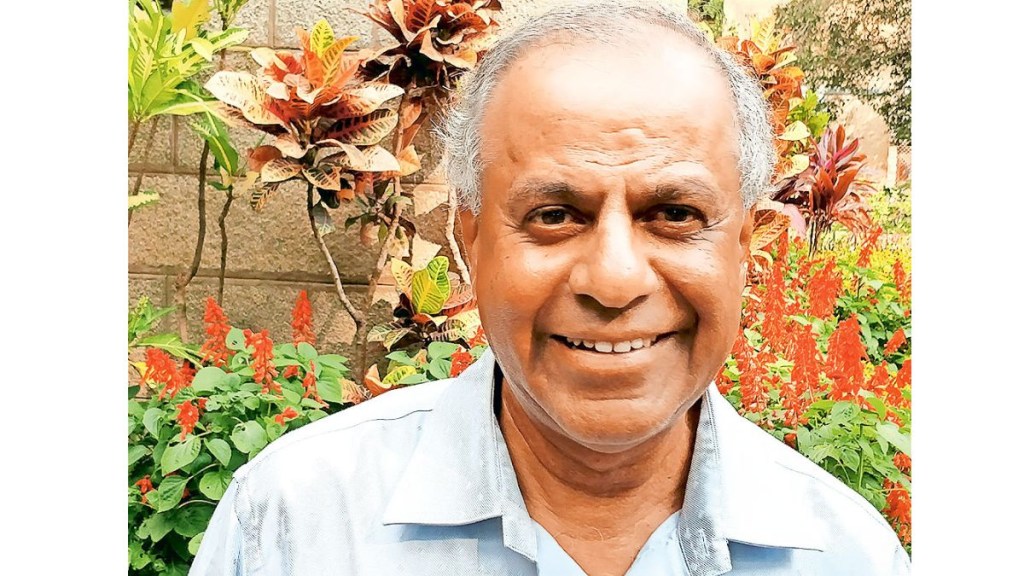India’S PREMIER Institute for advanced scientific and technological research and education, the Indian Institute of Science (IISc) in Bangalore, has started playing a crucial role in bringing together deeptech startups and academia to jointly develop futuristic technologies in a time-bound manner. The institute’s incubation division, Foundation for Science Innovation and Development (FSID), is the facilitator here. “Deep science startups need substantial support as they work to move from the lab to commercialising their ideas,” says CS Murali, chairman—Entrepreneurship cell, FSID, IISc. “As an incubator, we facilitate the connections to the startups to academia where faculty members can provide deep technical mentoring, access to lab, equipment etc. and industry that can provide use cases, problems, CSR funding that can help startup founders achieve their goals.” FSID has incubated 90+ startups so far that have deep science and societal impact at their core. “We have a very healthy pipeline of startups waiting to be incubated,” Murali reveals. FE spoke to the founders of some of the recent ventures that have successfully migrated from the lab to market. “Deep science startups need substantial support as they work to move from the lab to commercialising their ideas.” CS Murali, chairman – Entrepreneurship cell, FSID
Breaking language barriers
Fourie (SyncSense Technologies)
Domain: Artificial intelligence
Fourie is a GenAI content localisation platform, where you can dub, subtitle, and narrate any form of content and that too in multiple languages, seamlessly, hence reaching a larger audience. The two co-founders, Vibhor Saran and Vishal Bhalla, explain the basic idea behind their creation: “Around 70% of the 700 million Indian internet users find vernacular content more relatable than English in which half of the global internet content is available. Localisation—the key to bridge this demand and supply gap is expensive, people and time intensive and hence difficult to scale.”
Fourie opens up new market opportunities for businesses to build a connected world with no language barriers. It allows businesses to transform content in 40+ languages in over 750 voices at a fraction of the time and cost. “Our platform is already being used by content creators while enterprises in the education (upskilling) and retail (L&D) sectors are dishing multilingual content to their students and front line teams respectively in all major Indian languages,” says Saran. This startup is now entering the media and entertainment space by launching a style matching feature. With this, one can adapt a speaker’s voice characteristics from any language to other language (s) by utilising the prosodic elements in a small speech sample. “So get ready to hear your favourite celebrities speak different languages with the same emotions,” Saran explains.
New kid in rocket space
SpaceFields
Domain: SpaceTech
A high-tech venture, SpaceFields custom-designs and manufactures solid rocket propulsion systems for aerospace, defence and space applications. “Our domain has been historically defined by inertia, plagued by collapsed supply chains, and occupied by antiquated legacy incumbents. We are seeing a lot of consolidation, production delays and backlogs of Indian incumbents, as most of them have largely depended on technology transfers,” says Apurwa Masook, founder and CEO, SpaceFields. “Rapid design-build-test cycles are at our core and we adopt an agile hardware development approach. We have developed and patented key technologies in-house such as a solid composite green propellant, insulation liner, refractory sealant, etc. which enhance the ballistic performance of any rocket,” Masook explains.
“Defence PSUs, tri-services, military drone companies, OEMS, are our adopters. The feedback has been strongly constructive given that we have received interest from various companies, including the government, for multiple pilot projects. In defence, there is huge tactical interest for smokeless propellants while In space, there is growing need for higher payload carrying capacity to orbit. Our solutions can also help defence OEMs meet their offset obligations,” he adds. Masook believes that startups and academia can jointly develop core futuristic technologies, without the red-tapism, and then government labs and agencies can help ruggedised and qualify them to make deployable systems. “Our domain has been historically defined by inertia, plagued by collapsed supply chains, and occupied by antiquated legacy incumbents,” Apurwa Masook, founder & CEO, SpaceFields
Wearable tech for athletes
Fanplay IoT
Domain: Deeptech for sports & health
FanPlay is a sportstech IoT platform company with expertise in advanced wearables. “One of our innovations is a textile-based smart jersey wearable that monitors your vital signs like heart-rate, respiration, muscle movement, temperature and so on. From these basic vitals, we analyse heart-rate variability (HRV) and other parameters that help one to look at training effectiveness, injury prevention, sleep recovery and overall well-being of elite athletes,” says Mohan Rajgopal, founder & CEO, Fanplay IoT. “We use AI/ML to a large extent to personalise these analytics and offer a complete end-2-end solution for sports & health.”
“Unlike smartwatches and fitness belts that are inconvenient and less accurate for high movement sports, our jersey is comfortable and designed to be medical-grade,” says Vinay Jagtap, co-founder & director, Fanplay IoT. “We are designing and developing such wearables to bring professional grade training of elite athletes to the masses. Our innovation was launched during IPL 2022, with the popular team CSK, wherein the children in CSK Academy and professional cricketers used it for training. It helped them to manage their training sessions so that they don’t get injured without proper recovery,” he adds.
Since then, Fanplay’s jerseys have been piloted and accepted for deployment in some of the schools in Karnataka and Delhi. “As experts in wearables and the data IoT platform, we will be scaling up our offerings and penetrate both domestic and global markets. We already have many enquiries from global sports teams for our solutions. We will also be extending these innovations to solve healthcare issues,” says Rajgopal. On the industry-academia collaboration, Rajgopal feels the scenario has now improved compared to a decade ago. “One of the key strengths in Silicon Valley is the maturity of funding options. If our finance community like banks start to look beyond real-estate, gold bullions and mutual funds, they can help accelerate the progress of our startups that need some money for deeptech developments,” he adds.









